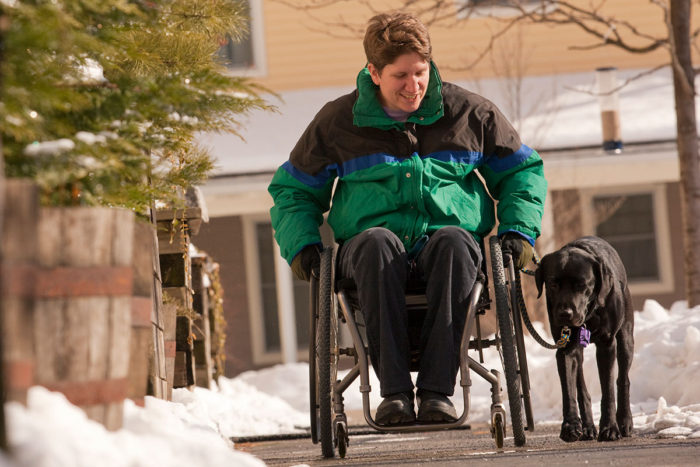Experimental drug shows promise as multiple sclerosis treatment
Brain’s shrinking slows with drug
 Getty Images
Getty ImagesAn experimental drug reduces brain atrophy in people with progressive multiple sclerosis, raising hopes that it also can reduce disability.
People with a progressive form of multiple sclerosis (MS) face a gradual decline of brain function that slowly strips away the ability to walk and may cause problems with speech and vision. Available treatments are only modestly effective at slowing the decline.
Now, a phase two clinical trial has shown that the investigational drug ibudilast slows brain shrinkage. While future studies will determine whether the drug relieves symptoms and reduces disability, the results are promising because more pronounced brain shrinkage is associated with more severe neurological symptoms.
“We were encouraged to see positive preliminary results for a progressive MS therapy that also appears safe,” said co-author Robert T. Naismith, MD, an associate professor of neurology at Washington University School of Medicine in St. Louis and a member of the steering committee overseeing the study. “A larger phase three study is the next step to evaluate the clinical benefit. If such a trial is positive, this treatment option may be available within the next several years.”
The study was published Aug. 29 in The New England Journal of Medicine.
Led by Robert J. Fox, MD, a neurologist at Cleveland Clinic in Ohio, the trial – known as the SPRINT MS study – involves 28 clinical sites including Washington University School of Medicine. In the study, 255 patients were randomly assigned to take up to 10 capsules of ibudilast or a placebo daily for nearly two years. Every six months, the participants underwent MRI brain scans. The researchers applied a variety of analysis techniques to the MRI images to assess differences in brain changes between the two groups.
The brains of patients in both groups continued to atrophy over the course of the study, but the decline was slower in the ibudilast group. Reducing the rate of atrophy may delay the worsening of symptoms, the researchers said.
“The study was not large enough to prove a clinical effect, but the data suggest that people’s disabilities may not have worsened as rapidly in the treatment group,” said Naismith, who is also director of the John L. Trotter MS Center at Washington University and a local principal investigator for the trial.
The most common side effects reported by participants included nausea and diarrhea, as well as headaches and depression. There was no significant difference between the groups in the number of patients who reported adverse effects.
“These findings provide a glimmer of hope for people with a form of multiple sclerosis that causes long-term disability but does not have many treatment options,” said Walter J. Koroshetz, MD, director of the National Institute of Neurological Disorders and Stroke (NINDS), part of the National Institutes of Health (NIH).
MS occurs when there is a breakdown of myelin, a fatty white substance wrapped around axons, which are long strands that carry messages from and between brain cells. When myelin starts to break down, communication between brain cells slows down, leading to muscle weakness and problems with movement, balance, sensation and vision. MS can be relapsing-remitting, in which symptoms occur then disappear for weeks or months and then may reappear, or progressive, which is marked by a gradual decline in function.
Future research will test whether reducing brain shrinkage affects thinking, walking and other problems in people with MS. In addition, such studies will examine whether ibudilast slows the progression of disability in MS patients.
The SPRINT-MS study represents a major collaboration among neurologists to investigate new treatments through the NIH-sponsored NeuroNEXT program, an innovative approach to neurological clinical trials that attempts to streamline phase two clinical trials.
MediciNova donated ibudilast and the placebo and provided less than 10 percent of the funding for the trial in a cooperative agreement with NINDS. MediciNova also had a representative on the protocol steering committee.






